“We do not know what 2021 will bring, but what each of us and all of us together can do, is to commit to taking care of each other and of creation, our common home.”
“according to St. Thomas Aquinas, [anger] is passion that moves the will to justice. All too often, injustice flourishes in our society precisely because we’re not angry enough.”
(Fr Bryan Massingale, professor of theological ethics at Fordham University, NY City) Read More...
CNS photo/Fernie Ceniceros, courtesy Diocese of El Paso
Read More....
| Fratelli tutti: “55. I invite everyone to renewed hope, for hope “speaks to us of something deeply rooted in every human heart, … of a thirst, an aspiration, a longing for a life of fulfillment, a desire to achieve great things, things that fill our heart and lift our spirit to lofty realities like truth, goodness and beauty, justice and love… Hope is bold; it can look beyond personal convenience, the petty securities and compensations which limit our horizon, and it can open us up to grand ideals that make life more beautiful and worthwhile”.[52] Let us continue, then, to advance along the paths of hope.” |
Whenever I feel sad and hopeless and sense that JPIC is not taken seriously enough by my fellow humans including some Franciscans, I end up sooner or later with these thoughts from Understanding JPIC:
“Perseverance
7.6.a. Sometimes working for JPIC can be difficult and seemingly hopeless because of indifference or even hostility. We must never lose heart or hope: "I would like to make an appeal to those in possession of greater resources, to public authorities and to all people of good will who are working for social justice: never tire of working for a more just world, marked by greater solidarity!” (Pope Francis, 25 July 2013)
9.6. Though JPIC is sometimes difficult we must always remember to persevere: “Let us not become weary in doing good, for at the proper time we will reap a harvest if we do not give up.” (Gal 6:9).
9.7. A last word from Francis: “Let us begin, brothers, to serve the Lord God, for up until now we have done little or nothing!” (1 Cel 103).”
Pope’s World Day of Peace message: no peace without a "culture of care" - Vatican News
In his message for the 54th World Day of Peace marked on 1 January, Pope Francis offers the Church’s social doctrine as a "compass" to foster a culture of care for peace in the world. Pope Francis appeals to the international community and every individual to foster a “culture of care” by advancing on the “path of fraternity, justice and peace between individuals, communities, peoples and nations.”
“There can be no peace without a culture of care,” the Pope stresses in his message for the 54th World Day of Peace, held on 1 January 2021. The Holy Father traces the evolution of the Church’s Culture of Care from the first book of the Bible to Jesus, through the early Church down to our times.
After the creation of the world, God entrusts it to Adam to “till it and keep it”. Cain’s response to God – “Am I my brother’s keeper?” – after killing his brother, Abel, is a reminder that all of us are keepers of one another. God’s protection of Cain, despite his crime, confirms the inviolable dignity of the person created in God’s image and likeness.
The “beating heart of the Church’s social doctrine [Pope Francis says,] can serve as a “grammar’ of care: commitment to promoting the dignity of each human person, solidarity with the poor and vulnerable, the pursuit of the common good and concern for the protection of creation.”
We need leadership!
We can do individual acts of kindness and care for creation but we are called to go out into “the city.” As entities in the OFS and Franciscan Family how can we expand our role to be in the forefront as our Rule calls us?
If that means to lead, how do we do it? Has our National Fraternity taken a lead?
Given that OFS Rule invites us to be in the forefront [i.e. to lead] in promoting justice [15]; cultivate peace [17] and move to the Franciscan concept of universal kinship [18]; and given that many, especially youth world wide, recognise that we face climate change as an urgent and possibly greatest threat to human existence, I ask: does the National Council accept the desirability of the formation of a bilingual Canadian Franciscan Family JPIC organisation to promote Evangelii Gaudium (2013), Laudato si’ (2015), Fratelli tutti (2020) and Catholic Social Doctrine as it evolves.
How do we implement Journeying Towards Care for Our Common Home (2020)? in which the Dicastery for Promotion of Integral Human Development called us all, families, dioceses, schools and religious orders, to participate in a new program and a public commitment for various institutions to begin a 7-year journey to total sustainability in the spirit of Laudato Si’. Surely that calls for a response from National?
To cheer from the sidelines and drag our feet is not an option and risks irrelevancy while we are concerned only with internal matters, important though they be. From the time of the Second Vatican Council especially, and under the guidance of subsequent popes, the Catholic Church has been reflecting on the meaning of the work of justice, peace and care of creation as it relates to evangelization. Under Pope Francis, this New Evangelization calls for a new impetus from Journeying Towards Care for Our Common Home. It's time to become informed and involved in this work, which seeks the happiness and freedom of every individual.
From Gospel to life: “Make justice your sacrifice, and trust in the Lord.” Ps 4:6
First, the Bosnian Muslim who saved the Sarajevo Jewish Hagaddah from the Nazis in 1942:
...Learn more
| Another beacon of hope: Bishop “Tatic” Don Samuel Ruiz Garcia (1924-2011) 24 January 2021 is the 10th anniversary of his death. Don Samuel built the church in Southern Mexico long before Pope Francis spoke of the peripheries. I met Tatic and he was, and still is, an inspiration to me in promoting Fair Trade coffee and in the struggle for justice and human rights. |
In his practice, being an autochthonous church meant incorporating indigenous traditions in the church and welcoming the participation of indigenous people in a region whose inhabitants had never been treated as equals by European colonizers and their descendants. Bishop Ruiz ordained hundreds of indigenous deacons and translated the Bible into Tzeltal, one of the many local Mayan dialects.
Beyond church reform, Bishop Ruiz became one of Chiapas’s and Mexico’s principal advocates of social justice and equality, championing indigenous rights and the struggle against poverty and racism. He founded the Centro de Derechos Humanos Fray Bartolomé de las Casas (Fray Bartolomé de las Casas Human Rights Centre), known as Frayba in 1989. Frayba has had a lasting influence on me because they asked me to visit Acteal 18 months after the massacre of Las Abejas, a pacificist group by paramilitaries. That visit was life changing for me.
Read more: 23 Years of Impunity for Perpetrators of Acteal Massacre
Landowners and the rich elites of Chiapas accused Tatic of Communist sympathies and confronted him, sometimes violently but he was only implementing the preferential option for the poor, a Catholic Social Doctrine principle at the heart of liberation theology.
He was also often at odds with members of the Mexican church hierarchy, who acted as defenders of the political and cultural status quo, and with the Vatican, which did not approve of his ordinations of indigenous deacons. In 1993, he was asked to step down. After he wrote a pastoral letter defending his reforms and his pastoral approach, Mexican bishops rallied behind him, and he stayed on for another six years. The Vatican banned the ordination of indigenous deacons soon after his resignation. But in death, Bishop Ruiz found a powerful ally in Pope Francis, who not only overturned the ban, but in 2016 prayed at Bishop Ruiz’s tomb and celebrated Mass in San Cristóbal with thousands.
When Tatic went to the highlands to visit indigenous communities who grew coffee on small plots he did not stay with the non-indigenous big estate (finca) landowners as his predecessors had, but with the local indigenous peoples. When he did visit the finca owners and was offered coffee he would tell them that their “coffee was paid for with blood” because of the injustice in landownership and treatment of indigenous peoples.
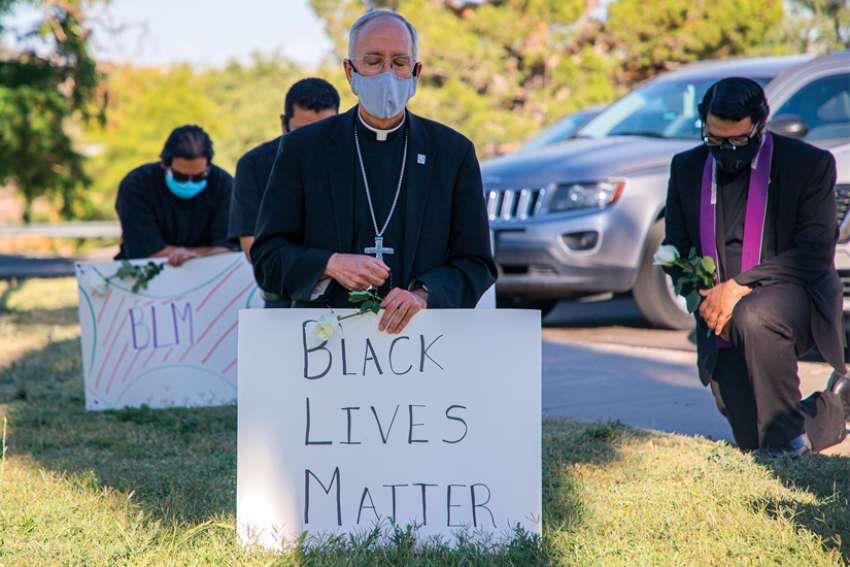

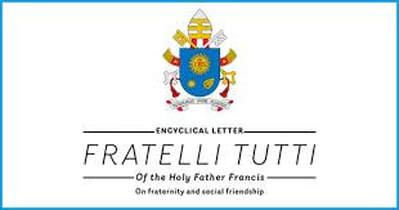

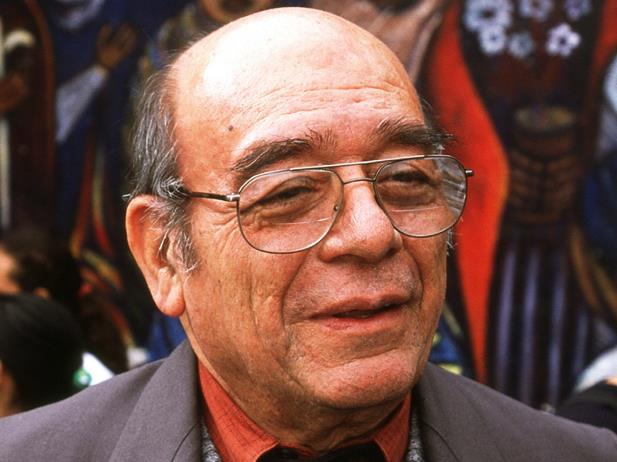
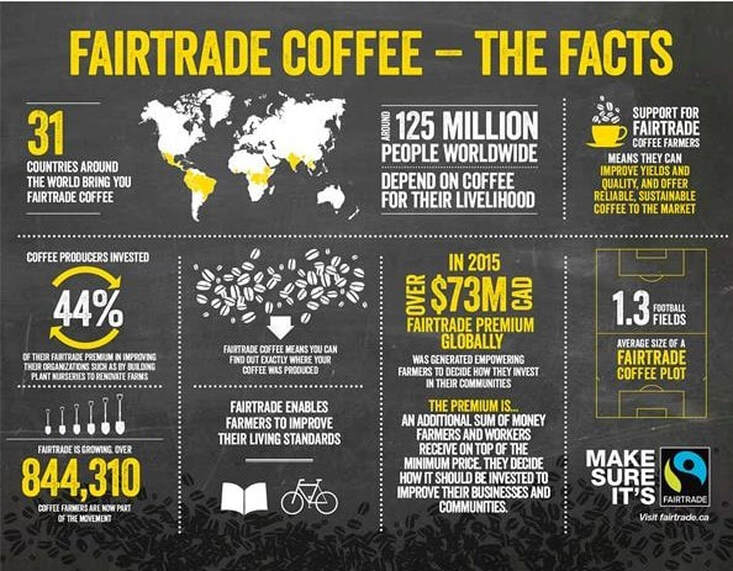
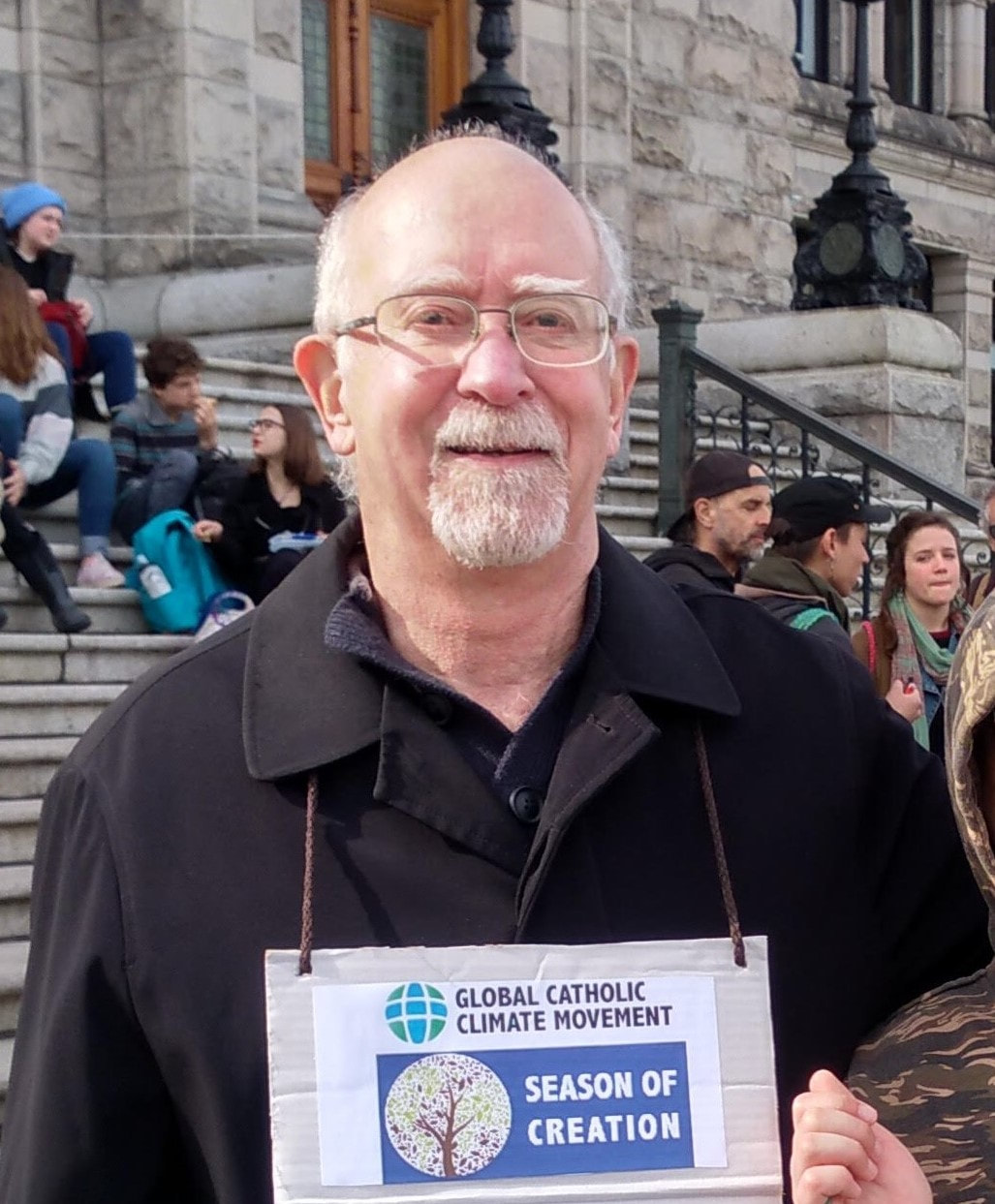

 RSS Feed
RSS Feed